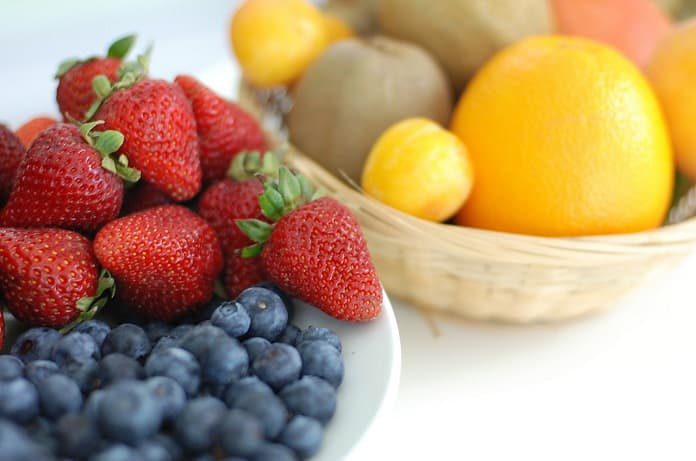Fruit is widely recommended by health organizations despite containing some sugars, including fructose. Recently, fructose has been shown to increase uric acid levels in the blood which can lead to hyperuricemia, gout, and kidney disease.
A new study assessed the effect of fructose from fruit vs. sugar-sweetened beverages on blood uric acid levels.
Fructose is a common fruit sugar.
It is often bonded to glucose to form the larger sugar sucrose or table sugar.
Fructose is found in fruits, honey, flowers, and root vegetables. Fructose, either alone or as a part of sucrose, is commonly added to foods for taste enhancement.
However, like other sugars, excessive consumption of fructose contributes to insulin resistance, obesity, and metabolic syndrome.
Recently, fructose consumption has fallen under scrutiny due to its harmful effects on the body.
Fructose metabolism in the liver leads to the production of uric acid, a metabolic waste product that is normally filtered out of the bloodstream by the kidneys.
However, too much uric acid in the blood can lead to hyperuricemia, a condition that causes gout and can lead to kidney disease. This is a concerning issue due to the recent increase in added sugars to food items, including high-fructose corn syrup.
Despite this, fruit consumption is always recommended by health organizations as a low energy-dense food rich in micronutrients.
This may be seen as a contradiction in nutritional advice as fructose from fruits is promoted and fructose from other foods is to be limited.
Some nutritionists have questioned whether fructose from fruit has the same effects on increasing uric acid as does fructose added to other food items.
To answer this question, a new study published in the American Journal of Clinical Nutrition compared the effects of fructose from whole fruit and fruit juice with a beverage with added fructose on uric acid concentration.
Does the Source of Fructose Make a Difference?
In this study, 73 patients were randomly assigned to a group to either ingest small or large servings of apples, small or large servings of apple juice, or a sugar-sweetened beverage.
The researchers collected blood samples of these individuals at baseline, 30 minutes after consumption, and 60 minutes after consumption.
The researchers found that plasma uric acid concentrations increased after the intake of all fructose-containing food items, regardless of fructose source.
This shows that the body’s responses to fructose are similar regardless of whether it is consumed from natural or artificial sources.
These results may have important implications for health nutritionists.
It is possible that consuming fruits and fructose-sweetened foods throughout the day may result in a chronic increase in uric acid.
However, it is not yet known whether small increases in uric acid, such as those which occur following fruit consumption, contribute to disease risk, or how long uric acid stays in the blood following fructose consumption.
Long-term studies are required to assess how small and transient changes in plasma uric acid affect health.
Written by Neeti Vashi, BSc
Reference: White, S. J. (2016). The effects of apples and apple juice on acute plasma uric acid production and satiety: a randomised controlled trial (Doctoral dissertation, University of Otago).



